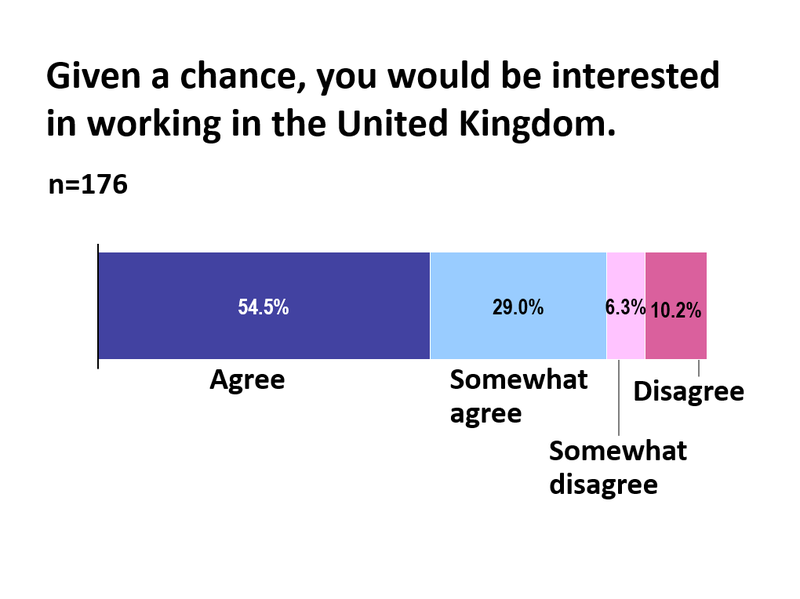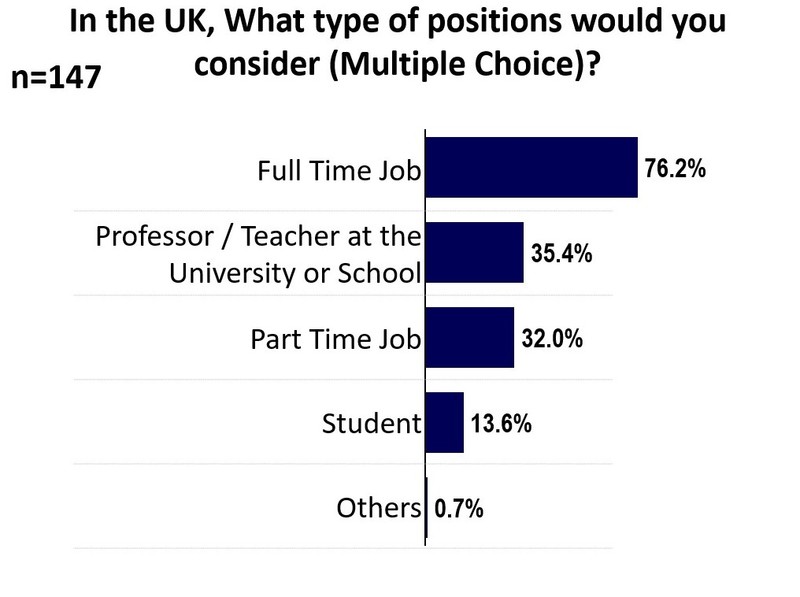Are Indian Doctors willing to work in the UK? (M3 India survey)
M3 India Newsdesk Jun 21, 2018
For Indian medical professionals, emigrating to foreign countries to seek out permanent jobs is often considered to be an enticing career path, filled with potential opportunities for professional success and development. M3 India recently conducted an online survey with Indian doctors to understand their sentiments about working abroad.

Here we bring to you the Part 1 of the survey results.
A peek into the necessary conditions to work in the United Kingdom.
The necessary conditions for foreign doctors to work in the United Kingdom (UK), currently, are illustrated below*:
Necessary qualifying criteria
- To become non-specialty doctor (GP or primary care)
- MBBS certification at minimum
- UK Visa
- IELTS score (+7.0 in each of the four areas, and an overall score of more than 7.5)
- Tests before and after the internship (PLAB 1, PLAB 2)
- Internship for +2 years (depending on the experiences in India)
- To become a specialty doctor, in addition to above, specialty training is necessary which would take 6 to 7 years.
Expected expense for preparing to work in the UK
The necessary cost for preparing to work in the UK is illustrated below:
- Test preparation: 4.6 to 5.5 lakh INR (GBP 5,000 to 6,000) for PLAB 1 and PLAB 2, plus the cost to take IELTS and Visa.
- Living costs would be higher than India in general.
Overview of the current compensation level of the doctors in the UK
The current compensation level of the doctors in the UK is illustrated below:
- 1st year Junior Doctor = 21 lakhs INR (GBP 23,000) / year
- 2nd year Junior Doctor = 26 lakhs INR (GBP 28,000) / year
- A doctor in Specialty training = 28 to 44 lakhs INR (GBP 30,000 to 47,000) / year
- Consultant / Specialty doctors = 56 to 93 INR lakhs (GBP 60,000 to 100,000) / year
Survey summary
After illustrating the current qualifying criteria, expected cost and the expected compensation for doctor professionals working in the UK, we asked the respondents if they would consider working in the United Kingdom(UK) and the responses were as follows:

84% Indian Doctors want to work in the UK, (Agree = 55%, Somewhat Agree = 29%)
- Top Reasons cited by the respondents for choosing to work in the UK were: Better QOL (68%), Good Earnings (43%), Degree/Certification (43%)
- Average/Median Months: Median 40 months, Average 73 months
10% of the total respondents disagreed with the idea of working in the UK and 6.3 % of the respondents somewhat disagreed with the idea. Respondents who chose “not” to work in the UK cited these reasons: Do not want to change current place (55%), Family will disagree (21%), No time to prepare for tests (21%).
Full-time position is the most coveted
We asked the respondents if there was any particular position that they would choose to work in the UK.

- 76% said they would seek a full-time position whereas 32% responded that they would choose a part-time job
- 35% respondents chose that they would seek a professor or a teacher’s job at the university or school
- 13% said that they would go to the UK as students
- A small number (0.7%) of the respondents said that they would choose any other position.
To read more about which country Indian doctors prefer for working- UK or USA?- click here.
*Though every attempt to ensure the accuracy and reliability of the information provided is made, the illustrative necessary conditions expressed in this article are researched by the author as of April 2018, and do not necessarily reflect all the official rules of any related agencies for the doctors to work in the countries, and their changes since April 2018. Examples of the illustrative conditions mentioned within this article are only examples.
Disclaimer: 176 doctors in India participated in this online survey. We have presented the data and facts as they are without generalising the results as a reflection of the views of entire Indian doctor population. Also, limiting the sample to the Internet channel only may introduce bias in the results. We also urge that the findings should not be interpreted as implying cause and effect.
-
Exclusive Write-ups & Webinars by KOLs
-
Daily Quiz by specialty
-
Paid Market Research Surveys
-
Case discussions, News & Journals' summaries